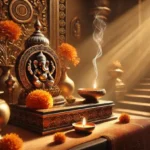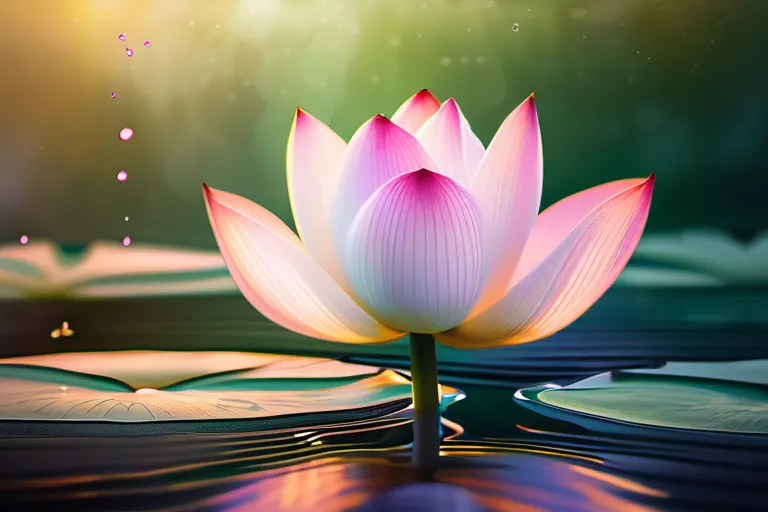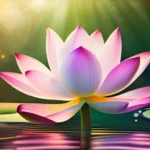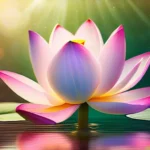Explore the beliefs, philosophies, and scriptures that support the concept of reincarnation in Hinduism.
Reincarnation is a fundamental belief in Hinduism, shaping its philosophy and influencing daily life. This article delves into the intricacies of this ancient doctrine, providing insights into its origins, key tenets, and implications for Hindus today.
The Concept of Reincarnation
Imagine stepping into a vast library filled with countless volumes, each page holding ancient wisdom and knowledge. In this grand hall of books, one particular tome stands out—The Rig Veda. This sacred text whispers about reincarnation, the idea that our soul or jiva atman travels through numerous lifetimes, learning and evolving.
But why did this concept arise in Hinduism? Could it be a mere attempt to explain the mysteries of life, death, and existence, or does it delve deeper into the core essence of our being?
‘Why should we limit ourselves to just one lifetime when we can explore countless incarnations?’
Reincarnation in Hinduism is rooted in the belief that the soul is eternal and unchanging. It’s like a river flowing through different vessels, each one representing a new life. This notion finds its foundational support in Bhagavad Gita, where Lord Krishna explains to Arjuna about the nature of the self:
‘Time I am, death I am not; fear I am not. Though I have been born, yet I shall never die… I am unmanifest and incomprehensible, unborn and imperishable.’ (Bhagavad Gita 2:14-20)
This quote suggests that the soul is beyond birth and death, much like a candle flame which remains unchanged despite the wick burning away. The Upanishads, profound philosophical texts, delve further into this idea by asserting that the self or jiva atman is eternal and undergoes reincarnation to achieve spiritual growth.
But how does one determine the path of their next life? This brings us to another fundamental concept—Karma. The law of cause and effect, karma guides our journey through lifetimes. It’s like planting a seed in the fertile soil of actions; every action we take today will bear fruit tomorrow.
So, as we explore reincarnation in Hinduism, let us ponder: are we simply wandering souls seeking enlightenment, or are we on a profound journey of self-discovery and growth?
Karma: The Law of Cause and Effect
Imagine a vast ocean where every drop represents a soul’s journey through time. In Hinduism, this ocean is called samsara, and within it lies the intricate dance of karma. Karma, often described as the law of cause and effect, shapes an individual’s fate in each reincarnation.
How do we understand karma? It’s like a cosmic ledger where every action, thought, and deed is recorded. Good actions lead to positive outcomes, while negative ones result in adverse consequences. But here’s the intriguing part: karma isn’t just about immediate results; it can span lifetimes, influencing future incarnations.
Let’s consider a metaphor: think of karma as the seeds you sow today. Depending on whether they’re good or bad, the harvest tomorrow will reflect your choices. In Hindu scriptures like the Bhagavad Gita and the Upanishads, karma is discussed at great length, emphasizing its role in one’s spiritual growth and liberation.
One of the key philosophies supporting reincarnation through karma suggests that every soul seeks purification and enlightenment. Through various lifetimes, souls refine their consciousness, moving closer to moksha, or liberation from the cycle of rebirth. This journey is not a one-time event but an ongoing process shaped by our actions.
But what if you’ve made mistakes in past lives? Can they be rectified now? The concept of karma allows for such corrections, offering individuals the chance to learn and grow. Each reincarnation presents new opportunities to make amends and progress spiritually.
In essence, karma is a powerful tool that guides souls towards self-improvement and ultimately, liberation. It’s not just about punishment or reward; it’s about personal evolution and understanding one’s role in the cosmic order. As you navigate your own path through life, consider the lessons of karma—what seeds are you planting today for tomorrow?
Samsara: The Cycle of Birth and Death
Samsara, the endless cycle of birth, death, and rebirth, is a cornerstone of Hindu beliefs about reincarnation. Imagine life as a grand dance where every step you take is part of a larger choreography, performed over countless stages in different forms. Just as the seasons repeat themselves year after year, samsara ensures that each soul experiences a multitude of lifetimes to learn and grow.
But why this endless loop? Why can’t we just find our way through one lifetime and be done with it? The answer lies in the intricate dance between karma and samsara. In Hinduism, every action has consequences, steering you towards a future that is both predetermined and open to change. Through repeated rebirths, souls continually face challenges that test their moral and spiritual growth.
Think of samsara as a vast ocean, with each wave symbolizing a new birth. Each crest and trough represents the highs and lows of existence, from joyous moments of enlightenment to struggles in the face of adversity. The goal is not just to survive these waves but to ride them towards greater understanding and spiritual purity.
What makes samsara truly profound is its belief in dharma, or duty. Each soul carries with it a unique dharma, guiding their actions and shaping the path of their next incarnation. Like threads on a loom, these duties interweave to form the fabric of one’s life, influencing where they land after each rebirth.
So, as you ponder this intricate cycle, consider your own journey. How do you perceive your role in samsara? Are you simply a participant or an active choreographer of your destiny?
In this endless dance, every moment matters. Each birth brings with it the potential for transformation and learning. As Hindu scriptures remind us: ‘You are not what you were born as; you are what you choose to become through the choices made in each life.’
The Role of Dharma in Reincarnation
Imagine life as a vast ocean, dharma, or duty, like the lighthouse guiding ships through stormy waters. In Hinduism, dharma plays a pivotal role in navigating the endless cycle of reincarnation, or samsara. How do you steer your life’s journey to find true peace and enlightenment?
Dharma is not just a set of rules but a way of living that harmonizes with one’s nature and the cosmic order. It is like planting seeds in fertile soil; each seed, depending on its kind, grows into a tree or a flower. Similarly, every individual has a unique path dictated by their sanskara (karma) from past lives. This path is shaped by one’s dharma, guiding actions that lead either towards liberation or further entanglement in the cycle of birth and death.
Consider the life of Rama as depicted in the epic Ramayana. His adherence to dharma was absolute, even when it meant great personal sacrifice. By following his dharma, he not only found peace but also set a path for others to follow. Just as Rama’s story illustrates, every Hindu is tasked with fulfilling their duty in the present life to break free from the cycle of reincarnation.
The Bhagavad Gita, a part of the Mahabharata, delves into the concept of dharma with profound wisdom. In this sacred text, Lord Krishna teaches Arjuna about the importance of performing one’s duty without attachment to its outcomes. This idea is crucial because it emphasizes that true fulfillment comes from doing what is right in line with one’s dharma, not from seeking personal gains or avoiding pain.
By embracing and understanding dharma, Hindus can work towards moksha, the ultimate goal of Hinduism, which we will explore next. Just as a river finds its way to the sea, so too does adhering to one’s dharma guide the soul towards liberation from the cycle of rebirth.
Moksha: Liberation from the Cycle
Moksha: Liberation from the Cycle
Imagine for a moment, you’re walking through a dense forest where every tree represents a life cycle, and each path is a possible path to freedom. In Hinduism, achieving moksha is like finding the ultimate exit from this labyrinth of reincarnation. The ultimate goal in Hindu philosophy is not just to live a good life but to attain a state of eternal liberation.
Think about it: why do we endure one lifetime after another if there’s no end? For Hindus, the cycle of birth, death, and rebirth (samsara) is seen as an endless treadmill. The question then arises: what drives us to seek release from this relentless round?
Isn’t it like trying to escape a never-ending nightmare where you keep waking up in the same place with no memory of how to break free?
Moksha is the key that unlocks this door. It’s not just about ending the cycle; it’s about realizing your true self, which is the eternal soul or Atman. This realization is akin to finding a map in a maze. Once you grasp the concept of the Atman, you can break free from the illusion that separates the soul from its divine essence.
In this pursuit, Hindu scriptures such as the Bhagavad Gita and Upanishads guide seekers with wisdom. They teach that understanding karman, or actions, and their consequences is crucial in shaping one’s destiny. It’s like navigating through a maze; every step you take has implications.
The paths to moksha are diverse, ranging from devotion (bhakti), knowledge (jñāna), and selfless service (karma yoga). Each path is like choosing between different exits in the forest, each leading to liberation but requiring different strategies. The Bhagavad Gita famously describes this journey as a dialogue between Arjuna and Krishna, where Krishna offers insights on how to live and act according to one’s dharma.
Ultimately, moksha is not just a destination; it’s the understanding that you are already the essence of the universe, waiting to be fully realized. It’s like finding your true self in a mirror reflection—clear, complete, and eternal.
In summary, achieving moksha is about realizing one’s true nature as an indivisible part of the divine. This understanding brings not just freedom but also inner peace and harmony with the cosmic order. It’s a profound journey that every seeker in Hinduism embarks on, each taking their unique path towards this ultimate liberation.
Reincarnation in Modern Hinduism
Reincarnation in Modern Hinduism: Explore how reincarnation continues to influence contemporary Hindu beliefs and practices.
Imagine stepping into a vast library where every book represents a different life, each story intertwined yet unique. In this grand narrative, Hinduism is one of the libraries that whisper about the cycle of rebirth, or reincarnation. How do modern Hindus navigate this concept in their daily lives? Is reincarnation just an ancient belief, or does it still resonate with contemporary practitioners?
The Bhagavad Gita, a sacred text within Hinduism, speaks of the soul’s journey through different bodies. It posits that the true essence of a person is not the physical body but the immortal Atman. This idea challenges us to think about our identity beyond just what we see in the mirror. How do modern Hindus reconcile this belief with their everyday experiences and choices?
In today’s fast-paced world, where technology seems to hold all the answers, some may wonder if reincarnation is still relevant. Yet, many continue to seek guidance from spiritual texts like the Vedas and Upanishads, which delve deeply into the nature of existence and rebirth. These ancient scriptures provide a framework for understanding life’s purpose and the cycles it follows.
Consider the practice of Pindadan, where family members offer food to ancestors during Hindu festivals like Shraddha. This ritual not only honors one’s forebears but also aligns with beliefs about past lives. It encourages modern Hindus to reflect on their actions and their impact on future incarnations, blending traditional rituals with contemporary values.
As we ponder the influence of reincarnation in modern Hinduism, it’s clear that this concept is more than just an abstract idea. It shapes moral conduct, community practices, and personal aspirations. How will you integrate these teachings into your own life journey?
Conclusion
 By understanding reincarnation, we gain a deeper appreciation for Hinduism’s holistic view of life and death. This belief fosters compassion, self-improvement, and the pursuit of spiritual growth.
By understanding reincarnation, we gain a deeper appreciation for Hinduism’s holistic view of life and death. This belief fosters compassion, self-improvement, and the pursuit of spiritual growth.











